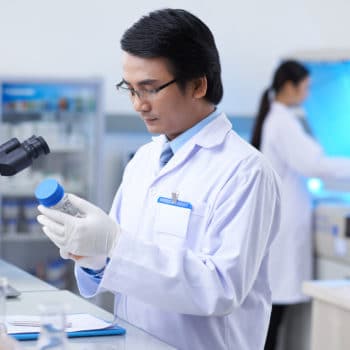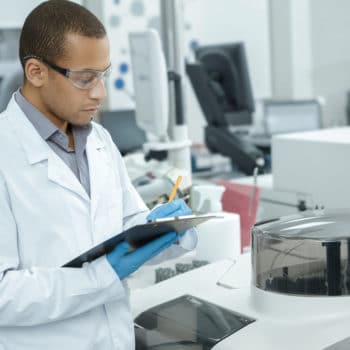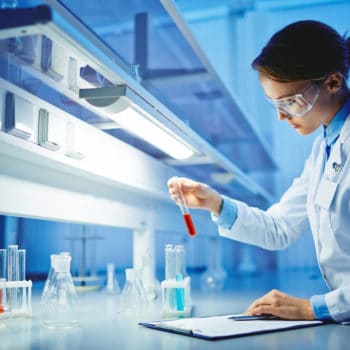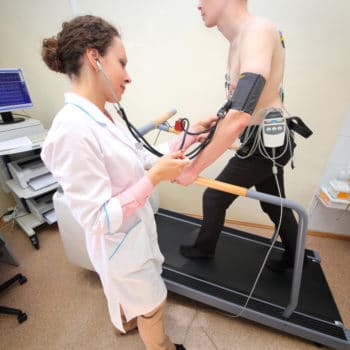Why We Love It
-
$119,270Potential Avg. Salary*
-
Growing DemandJob Outlook
* Salary & growth data is based on the recent Bureau of Labor and Statistics data published at https://www.bls.gov/oes/current/oes291051.htm for 29-1051 Pharmacists 11/2021. Based on national data, not school-specific information. Conditions in your area may vary.
If you’re interested in a career working in a pharmacy, in pharmaceutical sales, or in pharmaceutical research, then a bachelor of science in pharmaceutical sciences may be right for you.
Pharmaceutical science students study drug design and synthesis, toxicology, mechanisms of drug actions, and drug formulation, providing the education needed to enjoy careers as pharmacists, researchers, and sales reps.
What is a Degree in Pharmaceutical Sciences?
In a bachelor’s degree program in pharmaceutical sciences, students build their knowledge in the math and science of pharmacology—the study of the uses and effects of drugs.
While there are several career opportunities for graduates of bachelor’s degree programs—such as pharmacy tech, pharmaceutical sales representative, and research assistant—many degree programs are designed to provide students with the knowledge needed to get into and excel in grad school to become pharmacists or researchers.
Students generally choose a concentration within the program to focus their studies on. Students interested in pharmaceutical research and development often concentrate on biological chemistry; those interested in becoming pharmacists often concentrate on pharmaceutics; and those interested in becoming sales representatives for drug companies often concentrate on pharmaceutical sales. While all students will take a core set of courses, the concentration selected will guide future career opportunities.
Recommended Schools
What Courses Would I Take For a Major in Pharmaceutical Sciences?
- Biochemistry for Pharmaceutical Scientists
- Immunology
- Principles of Pathophysiology and Drug Action
- Dosage Forms
- Drug Discovery and Development
- Organic Chemistry
- Principles of Medicinal Chemistry
- Drug Metabolism and Bioanalysis
What Jobs Can You Get with a Degree in Pharmaceutical Sciences?
Demand for talented pharmacists, pharmacy techs, and pharmaceutical sales representatives should be high in the coming years due to the increased need for medicines within the aging Baby Boomer generation.
One of the largest generations of our time, the Baby Boomers are now reaching retirement age and are expected to need significant medical care in the coming decades. This should increase demand for professions throughout the healthcare industry, including those in pharmaceuticals.
How Long does it take?
A bachelors in Pharmaceutical Sciences will have a typical length of 4 years in a full time schedule. That said, there are many ways to speed up the timeframe by either taking more units via online coursework, community college, or taking free classes at OnlineDegree.com that could transfer to universities in the US.
Recommended Schools
Best Jobs for Pharmaceutical Sciences Degrees
Graduates of pharmaceutical science degree programs generally find careers within the pharmacological or healthcare industries, but even within those industries there are an ample number of ways to put your education to work.
Graduates can work as pharmacy techs or assistants, or they can become drug sales reps. Many also earn graduate degrees to work as pharmacists or pharmaceutical researchers.
How to save time and money
Our mission is to help you to avoid paying full price for college. We want your Pharmaceutical Sciences degree to be affordable and accessible. Here’s how you could save:
Create Your Free SmartPlan

There are many ways to make college affordable and accessible.
That’s why we created a helpful tool called SmartPlan.
It’s free, and helps you find potential ways to save and tons of information about each school you’re considering
Think of it as your “college blueprint”, to help you instantly craft a path to your degree:
- Which Colleges Match Your Needs
- Ways You Could Save Time & Money
- Free Courses You Could Take for Credit
- Valuable Data and Insights on Each College
- Detailed Steps You Should Take!
See what’s possible for you and generate a free plan within just a few minutes
Create My SmartPlanGet a Certificate in Pharmacy Tech First
If your ultimate career goal is to become a pharmacist, you may want to consider earning a certificate in pharmacy tech first. With a pharmacy technician certificate, you can find work in local and national pharmacies as an assistant to a professional pharmacist, enabling you to earn professional experience—and an income—while pursuing the required bachelor’s and graduate degrees needed for pharmacists.
Additionally, the certificate program credits may transfer to count toward your bachelor’s degree.
You Might also be Interested in
Many visitors who look for a degree in Pharmaceutical Sciences are also interested in the following degrees.













